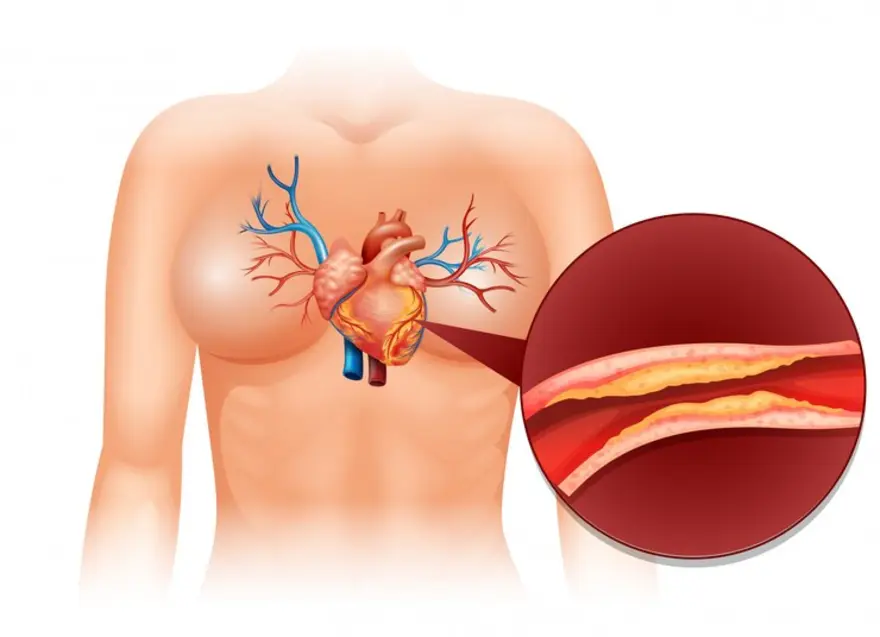Testosterone in men
Testosterone: Know Levels in Men and Testosterone Hormone in Female
Introduction You may have heard about testosterone in different contexts, but there’s much more to it than casual conversations. It is a sex hormone that plays a vital role in males and the health and well-being of a person. You may be surprised to know that women also need this hormone for multiple reasons. Let’s find out, in this article, what testosterone is and how it affects your health. What is Testosterone? Testosterone is a sex hormone primarily produced by the male testis and female ovaries, found in humans and animals. In men, it plays a crucial part in developing the reproductive organs during puberty. It also regulates muscle mass, red blood cell production in the male body, and fat distribution. In females, the ovaries and adrenal glands produce testosterone in much lesser amounts. It combines with the female sex hormone estrogen to assist the growth, maintenance, and repair of female reproductive tissues and bone mass. It also influences a woman’s energy levels, moods, and libido. How Testosterone Affects Male Health When a male child reaches adolescence, testosterone production in their bodies rises and continues till the age of 30, after which it starts to diminish. During this period, it significantly contributes to the development of the body. The testosterone levels in the body can also influence a man’s mood. The roles played by testosterone in men include: The development of male reproductive organs. The gradual voice change during adolescence. Growth of facial and pubic hairs. In later life, it might also lead to male pattern balding. The growth and strength of muscles and bones. Production of male reproductive gametes or sperms. Regulates libido. Sperm production. Lower Testosterone Levels in Men If testosterone levels are too low, it might affect the health adversely. You would notice some symptoms due to this, and your doctor might ask you to go for a test to check the testosterone levels in your bloodstream. The average testosterone levels in an adult male's bloodstream range from 249 to 836 nanograms per deciliter (ng/dL). If the testosterone levels are lower than the normal limits or close to the lower limit, then you would require to determine the leading cause behind it. Some causes can include the following. The pituitary gland malfunctions, which sends signals to the testicles to produce the hormone. Due to a chronic health condition, such as kidney disease, alcoholism, AIDS, or liver cirrhosis. Treatments like chemotherapy or radiation can also affect the levels of testosterone. Adult men with low levels of testosterone may experience the following symptoms: Declining sex drive. Low energy levels. Drastic weight gain. Depression. Sudden mood swings. Weak and thin bones. Lessening of hair on the body. Low self-confidence. However, adolescents experiencing symptoms of low testosterone levels could be a sign of delayed puberty. Some symptoms may include less facial or pubic hair, delayed voice breaking/changing, and underdeveloped reproductive parts. Higher Testosterone Levels in Men Higher levels of testosterone mean increased activity of the main functions regulated by it. However, if you wonder whether it means increased strength or higher sex drive, it doesn’t quite work that way. Although a high testosterone level in men may lead to more muscle mass, it has many side effects. When the levels of the male hormone in the body are abnormally high, it gives rise to the following symptoms, Lower sperm count. Damage in the heart muscle. Enlarged prostate. Insomnia. Increase in muscle mass. Frequent mood swings. Overgrowth of body hair. Acne. Stunted growth. One of the major causes of high testosterone levels can be attributed to Testosterone Replacement Therapy (TRT). It is a natural testosterone booster treatment to increase levels, usually suggested to those who experience deficient levels. This treatment is given only to people whose bodies do not produce adequate amounts, resulting in major developmental issues. You can adopt specific lifestyle changes to maintain a healthy testosterone hormone balance in case of minor fluctuations. Testosterone in Women It’s no surprise that women require testosterone for the proper functioning of their bodies. Women's ovaries and adrenal glands also produce testosterone in smaller quantities than men. A proper balance between the female sex hormone estrogen and testosterone is essential for a woman's physical and emotional well-being. Testosterone plays the following role in women, maintaining overall health. It makes bones strong and healthy. It improves the brain's cognitive functions. It regulates sex drive. It maintains and restores reproductive tissues. It supports menstrual health and fertility. It supports breast health. In a healthy adult female, testosterone levels remain between 15 and 70 nanograms per deciliter (ng/dL). If lower than the normal levels, the following symptoms can be noticed: Fertility issues. Lower sex drive. Changes in the breast tissues. Irregular menstrual cycles. Weaker bones. Whereas, if the levels are higher than normal, then you will notice the following signs: Severe acne. Abnormalities in blood sugar levels. Excess hair on the face and also other parts of the body. Polycystic ovarian syndrome or PCOS. Infertility. Obesity. Decreased menstruation. Conclusion Testosterone is an essential hormone, even if incorrectly blamed for all unpleasant, unrefined aggressive, macho, angsty behaviourism. The term commonly thrown in when describing ultra, aggressive dominating behaviour is yet not fully understood. Maintaining proper levels of testosterone in both men and women is crucial. Otherwise, it might lead to damage to both the mind and body. You can check the testosterone levels in your body through a testosterone profile test. However, remember that a single test report reflecting a high or low testosterone level may not indicate anything too severe. You will also have to consider the symptoms to be sure. Always consult a medical expert or doctor about mild to severe symptoms.
 Home Visit
Home Visit Upload
Upload















 WhatsApp
WhatsApp